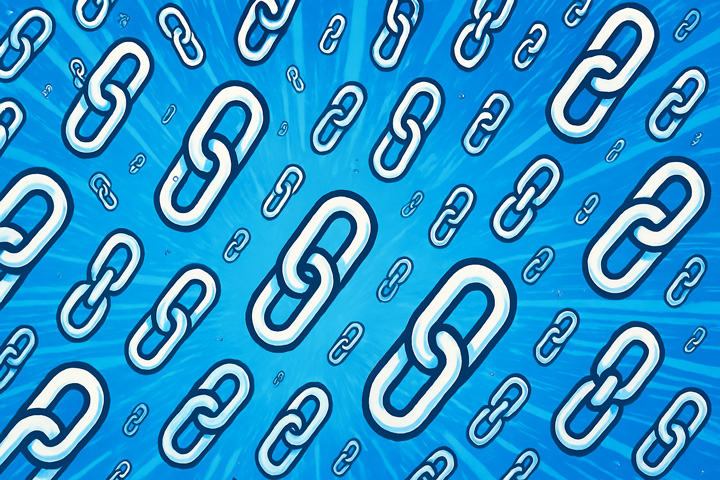
While performing a link authority gap analysis recently for several companies, I noticed a common (and disturbing) theme. The sites had earned powerful links from major news and media publishers, yet the links were nofollowed. Or worse, those sites were mentioned based on their hard work and research, yet they weren’t linked to at all.
Sure, links and mentions are important when discussing the A in E-E-A-T (as Google has even explained), but why not just link out when the site has earned that link? It was incredibly frustrating for my clients to see. And as an SEO, it drove me nuts…
It’s a maddening situation and there are several reasons this is happening. Some of the reasons are the result of SEO conspiracy theories, speculation on how Google might view those links, attempts to “sculpt” PageRank, and more. So, misinformation has led to some publishers simply not linking out, or nofollowing links (which means signals, including PageRank, are not passed downstream to pages).
Or are they still passing signals? More on that soon.
Also, just to clarify, I am referring to sites earning powerful links via legitimate ways and not some type of link scheme. You can read all about link spam in Google’s documentation. For example, I’m referring to sites that published high-quality and valuable content, yet the linking site decided to nofollow the links or not even link at all. But if a site provides links as part of business relationship, for advertising dollars, etc., then those links should be nofollowed. Again, I’m not referring to that in the post.
Links Gone Wrong: Some examples of earned links that never become full links.
For example, I recently performed two separate link gap analyses and came across this situation several times. Below, you can see several powerful, earned links from news or media publishers based on publishing valuable, high-quality content, yet the links are nofollowed. Note, I’ll cover more about how Google treats nofollow soon. It’s a bit nuanced, like many things in SEO.
First up, multiple links earned from this powerful news publisher. But… the links are nofollowed:
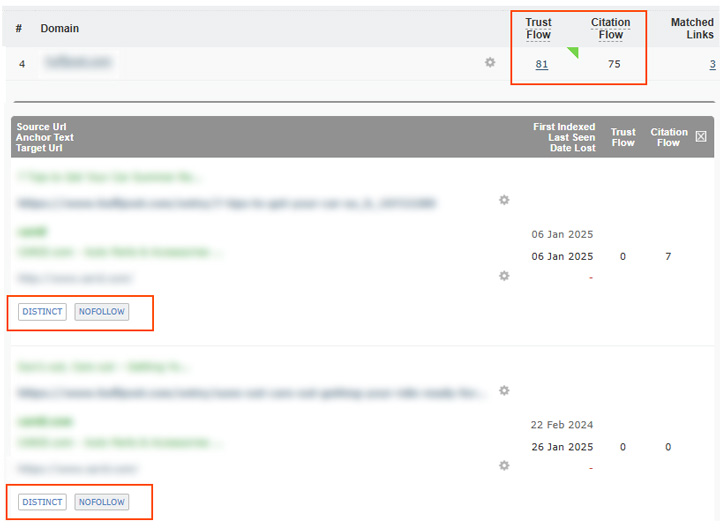
Here is the link profile from the news publisher that’s nofollowing the link… Yep, powerful.
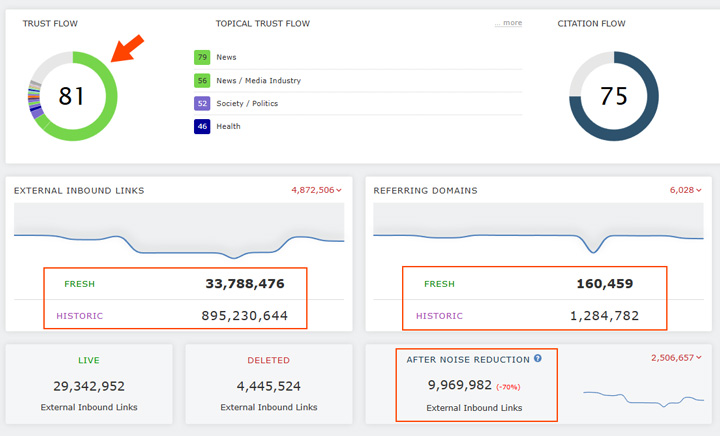
Here’s another example. This time it’s a media publisher that’s nofollowing links:
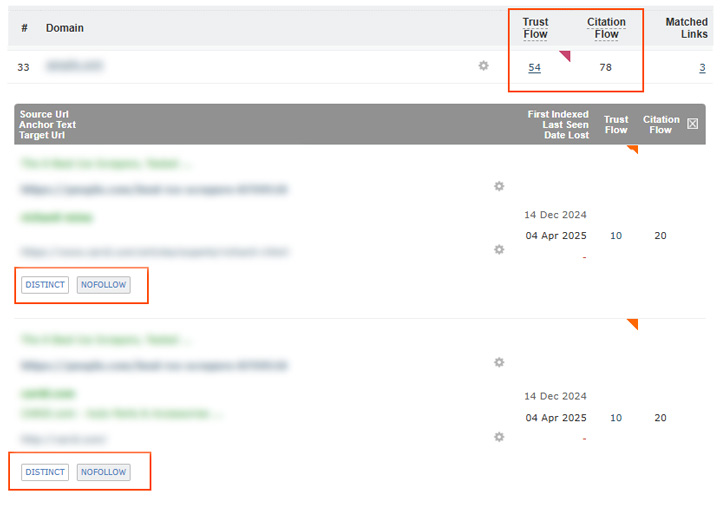
And here is the link profile for the media publisher nofollowing the links. Again, very powerful.
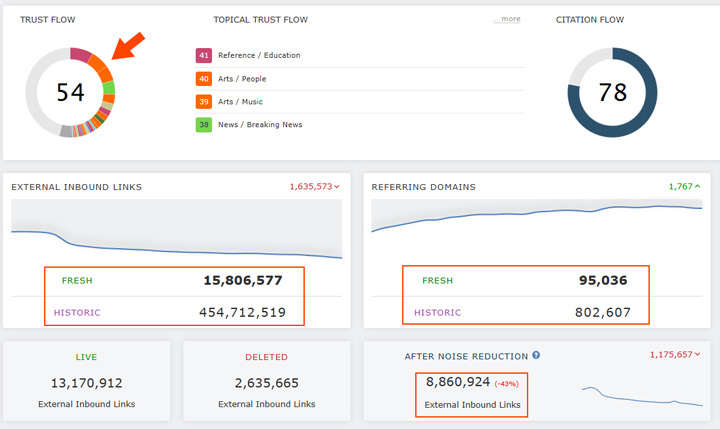
Needless to say, those links would be incredible if they were standard links (and didn’t have the nofollow link attribute).
Link Madness Inception: When it happens to you! My recent post earned links, sort of.
Heck, this even happened to me recently based on my post about Reddit’s AI translations! For example, The Indian Express wrote an article covering the situation based on my post and research. They name me, provide my tweet about the topic, etc., yet don’t link to the actual article that spawned their own article. They are simply linking to my tweet and NOT the article containing my actual research and analysis (which would be extremely valuable for their readers to view…)
Seriously, what the heck is going on here? They wouldn’t even have a story if it wasn’t for my article. OMG.
Below, you can see they embedded my tweet, but there is no link to my article containing my research and analysis. Ugh.
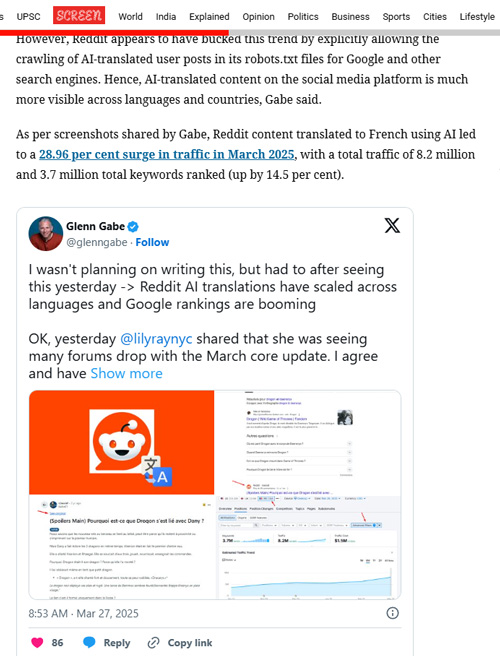
But wait, nofollow is a hint now for Google:
Now, if you’ve been following the nofollow situation over the years (pun intended), then you might know there’s a twist with how Google treats the nofollow link attribute. Prior to 2019, nofollow was straightforward for Google. If Google encountered a link with the nofollow attribute, it would not pass signals, including PageRank, to the destination url. Period, end of story.
But in 2019, Google changed its stance on nofollow. It decided to use nofollow as a hint. So Google’s systems would decide whether to pass signals, including PageRank, downstream. And before you get too excited, no, there is not a way of knowing when that is happening.
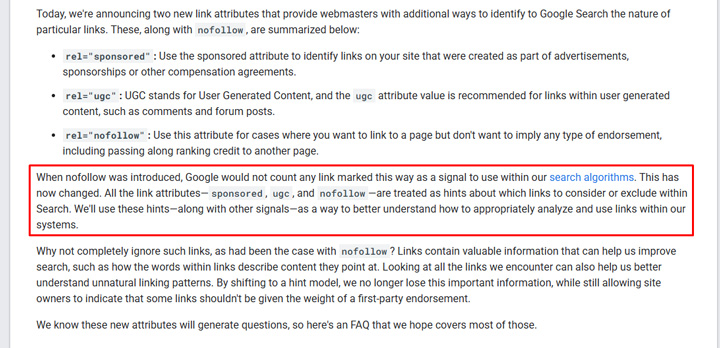
Therefore, based on nofollow being a hint, we have no way of knowing when Google is deciding to treat the link normally and pass signals, including PageRank, to the downstream page. Google’s systems decide when to do that.
Well, I hope Google’s systems are smart enough to understand that a major news or media publisher should be linking out normally to its sources and references. And those links should absolutely be passing signals, including PageRank, to the urls that earned those links.
As Google explained in its announcement in 2019:
“All the link attributes—sponsored, ugc, and nofollow—are treated as hints about which links to consider or exclude within Search. We’ll use these hints—along with other signals—as a way to better understand how to appropriately analyze and use links within our systems.”
So based on nofollow being a hint, there are some nofollowed links that will actually pass signals (and be used as a signal in Google’s Search algorithms). Note, most links that are nofollowed will be treated the same way as before 2019, but not all.
Help me help you. FAQs for news and media publishers:
Based on the maddening situation of earned links going wrong, I decided to provide some helpful FAQs for news and media publishers. If you are a news or media publisher and confused about when, and how, to link normally, then I hope the FAQs below can clear up some of the confusion.
- Q: If I found supporting information for an article I’m writing, should I link to that page? And if so, should the link be nofollowed?
- A: First, YES, please link to that page. It’s how the web works. And second, DO NOT add the nofollow attribute. You should be casting a vote for that page if you yourself used that content to help provide a better article.
- Q: If the topic of my article is completely based on someone else’s research, article, blog post, etc., should I link to that article? i.e. I wouldn’t have a story without that third-party content spawning my own article.
- A: YES, DEFINTELY LINK TO THE ARTICLE THEN. That’s why you have an article in the first place. You literally wouldn’t have an article without that person publishing the content. And DO NOT use the nofollow attribute. Again, if you based your entire article on their work, then you should absolutely be linking to them normally (so the link can be used as a signal in Google’s Search algorithms).
- Q: I am providing a list of references at the bottom of my article. Should those be nofollowed?
- A: No, those should be normal links that pass signals. If you value those articles and research enough to use as sources for your own article, then definitely link to them normally. DO NOT use the nofollow attribute.
- Q: If I found a social media share that mentions the article from the source (like from X, LinkedIn, Bluesky, etc.), should I just embed that social share in the article or should I also link directly to the source article that contains all of the information and research?
- A: It’s fine to embed the social share (X post, LinkedIn update, etc.), but DEFINITELY link to the source article on the third-party site as well. Social networks have millions of links already… they don’t need any more. But publishers need them, and should receive those links, when they earn them by publishing high-quality and valuable content. Links are votes to Google, and those signals can be used by its Search ranking algorithms. So yes, please link to the source article and DO NOT use the nofollow attribute.
- Q: If I’m linking normally like you explained, then what is nofollow actually for?
- A: The nofollow attribute is a way to tell Google that the link did not earn the vote. It was paid for, sponsored, added as user-generated content, etc. For situations like that, it’s best to use rel nofollow, rel sponsored, or rel ugc to signal to Google that the link should NOT pass signals, including PageRank, to the destination url. You can read more about each attribute in Google’s documentation.
Summary – Just link out, it’s how the web works.
If you’re a news or media publisher and have been nofollowing links when those links were earned, then I hope my post helped clear up some confusion about how to properly link to third-party sites. Don’t overthink the situation. If a piece of content helped you when writing your own article, then link to it. And don’t nofollow the links. Linking normally can help Google understand which urls and sites are valuable, and those link signals can be used by Google in its Search algorithms. Again, Google is using nofollow as a hint, so it might be passing signals for some of those links anyway!
So please, link out normally to third-party sites when they truly earn those links. It’s just the way the web works. They will appreciate it, Google will appreciate it, and the entire web ecosystem will appreciate it.
GG
